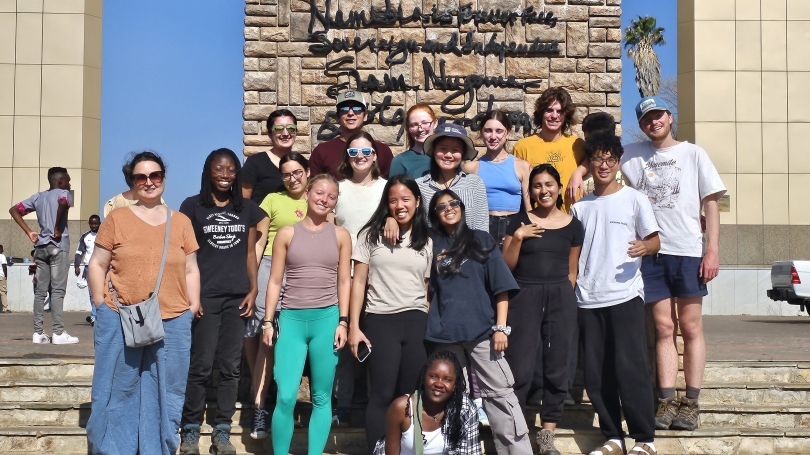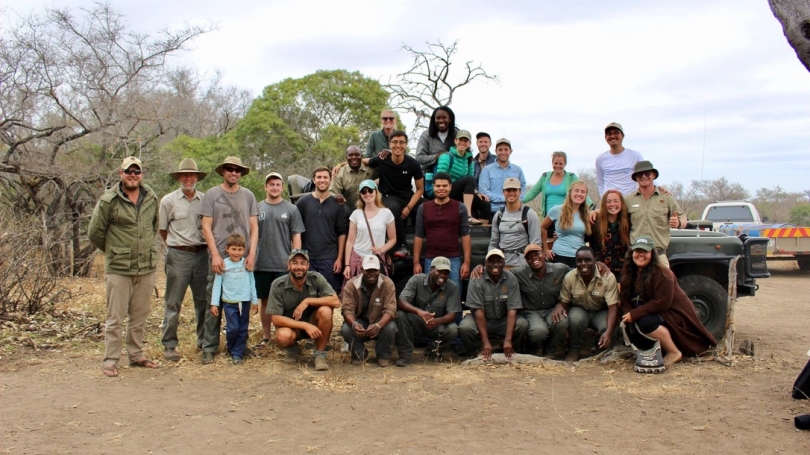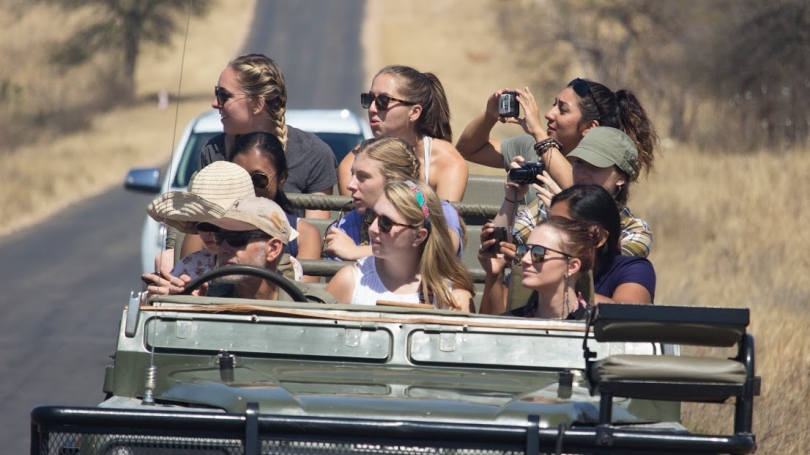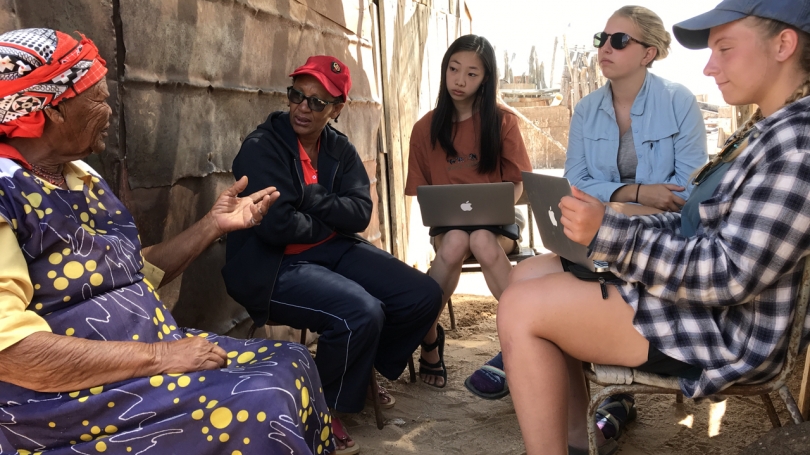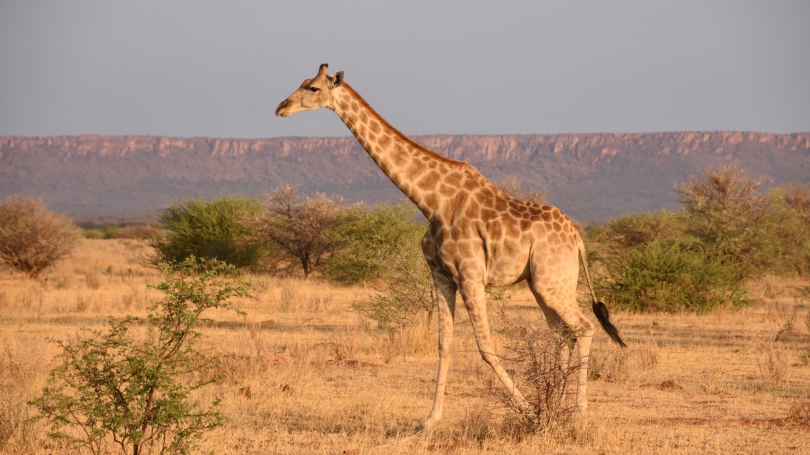The ENVS Africa Foreign Study program takes place in Namibia in Southern Africa. The broad theme of the program is the interplay between social and economic development and environment conservation, particularly in the context of natural resource use and management. We approach these issues from the interdisciplinary perspective of Environmental Studies, integrating insights from the natural and social sciences. The overarching theoretical construct of the program is that of the Social-Ecological System (SES), which represents the importance of understanding both social and biophysical processes.
The program gives us the opportunity to learn about environmental issues in the unique ecological, historical and cultural milieu of Southern Africa. One advantage of the Southern Africa region as the site for this FSP is degree to which these countries have experimented with different models of natural resource management. An additional advantage is the degree to which we directly engage with local partners on the ground to explore these models.
Thus, the learning experience on our FSP is very different from that in a classroom setting. The pedagogy of the program emphasizes active and participatory learning. The responsibility for learning resides equally with the students and the professors. A primary way in which students will engage with the sites we will visit is through conducting research as an environmental problem-solving tool. This research is both empirical and literature based. Through the research process, students are expected to be co-producers of new knowledge. An important part of this idea for us is that we will engage with local systems and partners as active participants, rather than just being "education tourists." This perspective requires that we be responsible and productive participants in each of the systems that we enter on the program.
The program focuses heavily on conservation, development, and community‐based natural resource management in southern Africa. In your application and interview you should be able to discuss in depth your interest in these issues – or related issues - and why the FSP experience is important for your academic and/or professional growth.
Primary Intellectual and Personal Challenges of the AFSP
(a.k.a. our core values and principles)
-
Shift from passive to active learning – be a participant
-
Take intellectual and personal ownership of the FSP experience. Become a co-producer of knowledge
-
Synthesizing different ways of learning and knowing (empirical and theoretical)
-
Tolerance and patience for ambiguity, complexity and frustration
-
High expectations of personal maturity and accountability
-
Stepping out of your Dartmouth comfort-zone
